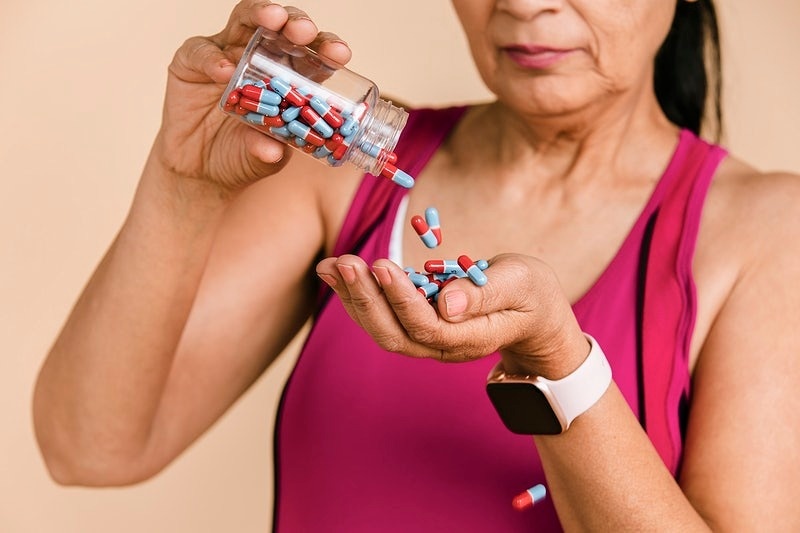What Does An Opioid Overdose Look Like?


Opioids are among the deadliest drugs to abuse, and overdoses are often fatal. Here's what to do during an opioid overdose. Call The Forge today!
Identifying an opioid overdose can help save lives and reverse a fatal situation. Unfortunately, fatal overdoses are among the leading cause of accidents and deaths across the United States regardless of whether the opioid is directly prescribed or bought on the street. Therefore, individuals in the United States must know precisely how to spot the signs of an opioid overdose, should one occur.
What Happens During An Opioid Overdose?
Illicit opioids are powerful drugs with heightened fatality risks that often result from opioid abuse and addiction. The increased risks of opioids are amplified in the overdose fatality statistics because the drug becomes more dangerous when combined with others. Furthermore, an opioid taken in high dosage is likely to lead to a fatal event.
Some individuals who take opioids and mix them with other substances or have underlying core medical conditions are at risk of overdosing. Deaths from opioid overdose happen more often than not as the opioid infiltrates the brain and stops the body's ability to breathe.
Signs of an Opioid Overdose
An opioid overdose can occur at any point and any place. During an opioid overdose, an individual may experience difficulty breathing, and the breath can be slowed or ultimately stopped. Opioid overdoses lead to extensive brain damage, and if not treated immediately, a fatal outcome may occur. Recognizing the signs of an opioid overdose is vital to help individuals who may be struggling.
If an individual's pupils are small and constricted, they may have recently taken opioids. Another sign is a lack of consciousness or if the individual immediately fell asleep or "nodded out." Opioid overdoses make individuals feel like they are choking, and their respiration starts to become shallow or may even stop. Furthermore, if their body goes limp or starts turning various colors, the overdose may have begun or already led to death.
Opioid overdoses are extremely scary for those who do not recognize the signs of an opioid overdose. Individuals who struggle with an opioid overdose will often start making gurgling sounds and need help immediately.
If someone is experiencing an overdose, it is essential not to tend to the situation alone. Instead, professionals should be alerted. Calling 911 and keeping the individual awake while waiting for help to arrive is the best thing to do.
Preventative Maintenance Strategies for Opioid Overdoses
Opioid overdoses, unfortunately, are becoming common in the United States because of the amount of availability of addictive opioids, including fentanyl. However, researchers and scientists continue to work with the healthcare industry to create new preventative strategies to recognize, respond, and prevent opioid overdoses.
Numerous treatments across the United States help individuals who struggle with opioids before an overdose occurs. Many addiction centers will offer medicated assisted therapy (MAT). Specific medication can be given at a particular dosage to reverse opioid overdose effects rapidly. Naloxone helps as a temporary fix to stop the overdose and fatalities from happening. If individuals show signs and symptoms of opioid overdose, the addiction center can educate them about prevention with the proper treatment and procedures.
Administering Naloxone depends on the type prescribed. It may come in the nasal spray or an auto-injectable device that makes it easy to inject into the individual's body. In case of emergencies, 911 and poison control can help to prevent death and provide the kind of care needed. Suggesting continued care and addiction recovery treatment to the one struggling may save a life as well.
When opioids are mixed with other substances like alcohol or antidepressants, fatality risks increase. Every American needs to understand how to spot opioid overdoses and plan preventative maintenance to save lives.
Protect Yourself and Protect Others From Opioid Overdoses
Death from opioid overdoes, unfortunately, occurs far too often. Powerful narcotics such as fentanyl contribute to overdoses as well. Overdoses can stop an individual from breathing within just a few minutes. Opioid overdoses happen when an individual mixes opioid with other substances or takes too much at one time.
Thankfully there are treatment options such as MAT. This form of assistance helps individuals find professional and healthy guidance to protect themselves and the lives of others before an opioid overdose occurs.
It is time that more individuals begin educating themselves and pay more attention to potential problematic signs for family and friends. Protecting various individuals from opioid overdoses is paramount for their health and well-being. The more prepared everyone is, the stronger their defenses are. Therefore, the ability to save lives becomes possible, should the occasion arise. With significant knowledge and awareness, people can begin living healthier without jeopardizing their lives.
Providing Appropriate Information About Opioid Overdoses Saves Lives
At The Forge, we understand how severe an opioid overdose is to you, your friends, and your loved ones. If you or your loved one at any point needs help and guidance with opioid abuse or are looking for a tailored treatment option, The Forge’s team is here to help you today.
Opioid addiction treatment facilities help individuals who struggle with the substance find ways to live a healthier and happier life without the drug. Our professional and caring staff at The Forge can give you insights on how to spot an opioid overdose and what you can do to prevent it from happening.
If you or someone you love is in an opioid overdose situation, contact 911 or reach out to our team for help now.
Are You Struggling with Mental Health or Addiction?
We Can Help. Call Us Now!
CALL: 877-839-1772





